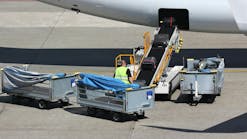FORT LAUDERDALE, FL -- Gulfstream International Airlines Inc. says it has filed a detailed response to the Federal Aviation Administration's (FAA) findings from a 2008 inspection and proposed civil penalty. The company provided documentation that it believes shows that it was in compliance with the relevant regulations in substantially all of the findings by the FAA and, thus, asserts there were no violations in those cases.
The company recognizes, however, that information presented to the FAA during the 2008 inspection could have been confusing, resulting in differences in interpretation. To reduce the risk of future misunderstandings, Gulfstream changed recordkeeping processes last year even in cases where it disagrees with the FAA findings. None of the findings, even those with which Gulfstream concurred, involved safety-of-flight issues.
"We do an outstanding job of running a safe airline for our customers and employees. The FAA identified several instances where mistakes had been made, principally in record-keeping, and we have strengthened our efforts to ensure that our records are not only accurate, but clear," says Dave Hackett, Gulfstream President and CEO.
Gulfstream's maintenance program has been recognized for 12 consecutive years with the FAA's Diamond Certificate of Excellence, Hackett notes, and it has an excellent safety record - accident-free for its almost 20 years of operations.
"While we may respectfully disagree with the FAA's findings of violations in many cases, we do agree that any error is one too many. Beginning last summer, we immediately instituted daily flight record audits for 100 percent of our flights to prevent any future record-keeping errors," says Hackett.
Of the issues cited by the FAA, Gulfstream :
- Agrees there was one inadvertent scheduling error violation for one pilot being scheduled for eight consecutive days, one more day than the allowed seven days, even though he only flew on six of those days.
- Agrees there were errors involving 10 pilots for discrepancies between pilot logs and the automated system, none resulting in pilots flying or being on duty more than allowed.
- Asserts that all other questions about pilot time were the result of payroll-related record keeping for non-flight, ground repositioning of aircraft and accordingly, there were no violations.
- Asserts that no dispatchers were scheduled for more than 10 hours on duty, although some did work longer as allowed by FAA rules because of operational circumstances beyond Gulfstream's control.
- Believes the two maintenance practices cited by the FAA were handled properly and were not violations.
While the company disagrees with the majority of the FAA findings, there can be no assurance of the outcome of the process with the FAA or the amount of any penalty ultimately imposed by the FAA.
Gulfstream's letter to the FAA, which accompanied its response and other background information can be found at www.gulfstreamair.com/responsetofaa.




